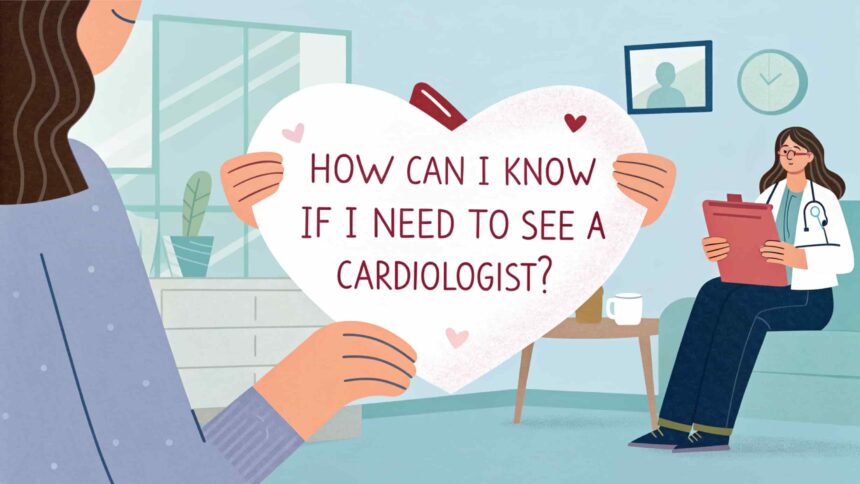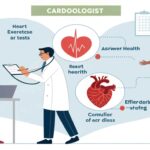Heart disease is one of the leading causes of health problems worldwide. Many early warning signs of heart trouble can be subtle, making it essential to pay attention to your body. Seeing a cardiologist—a doctor who specializes in diagnosing and treating heart conditions—can be a life-saving decision. Whether you’re experiencing chest pain, shortness of breath, or have a family history of heart disease, knowing when to consult a specialist is crucial for prevention and treatment.
Persistent Chest Pain or Discomfort
One of the most common and serious signs is chest pain or tightness, especially if it:
- Feels like pressure, squeezing, or burning
- Happens during physical activity or stress
- Spreads to the arm, neck, or jaw
- Improves with rest
Such symptoms may indicate angina or early heart disease and should not be ignored.
Shortness of Breath
If you struggle to catch your breath during everyday activities or while lying down, it may be a sign of:
- Heart failure
- Valve problems
- Arrhythmias
This is particularly concerning if it’s new, worsens over time, or comes with fatigue or swelling.
High Blood Pressure
Consistently elevated blood pressure can damage your heart over time. A cardiologist can help manage hypertension with medications, lifestyle changes, and monitoring.
Irregular Heartbeat or Palpitations
A fluttering, pounding, or racing heart may be caused by arrhythmias. While not all are dangerous, some can increase your risk of stroke or heart failure and require specialist care.
Family History of Heart Disease
If your parents or siblings had heart problems at an early age (under 55 for men, under 65 for women), you may be genetically predisposed. A cardiologist can assess your risk and recommend early prevention steps.
High Cholesterol or Diabetes
Both conditions significantly raise your risk of heart disease. A cardiologist can evaluate your cardiovascular health, adjust medications, and guide you on proper heart care.
Swelling in the Legs, Ankles, or Feet
Fluid buildup in the lower limbs may signal heart failure or poor circulation. A cardiologist can perform imaging tests and prescribe diuretics or other treatments if needed.
Fatigue and Dizziness
Unexplained fatigue or frequent dizziness—especially during activity—may indicate poor heart function or blocked arteries. These symptoms should prompt a thorough heart evaluation.
Smoking History
If you’re a current or former smoker, your risk of heart and vascular disease is higher. A cardiologist can assess your artery health and recommend steps to reverse damage.
Preparing for Surgery or Starting a New Exercise Plan
People with existing heart conditions or risk factors may need clearance from a cardiologist before surgery or intense physical activity to avoid complications.
Conclusion
You should consider seeing a cardiologist if you have chest pain, shortness of breath, high blood pressure, irregular heartbeat, or risk factors like family history or diabetes. Early consultation can detect problems before they become serious. If you’re unsure, it’s better to be cautious—heart health is too important to ignore. A cardiologist can offer expert guidance and peace of mind for your long-term wellness.
















